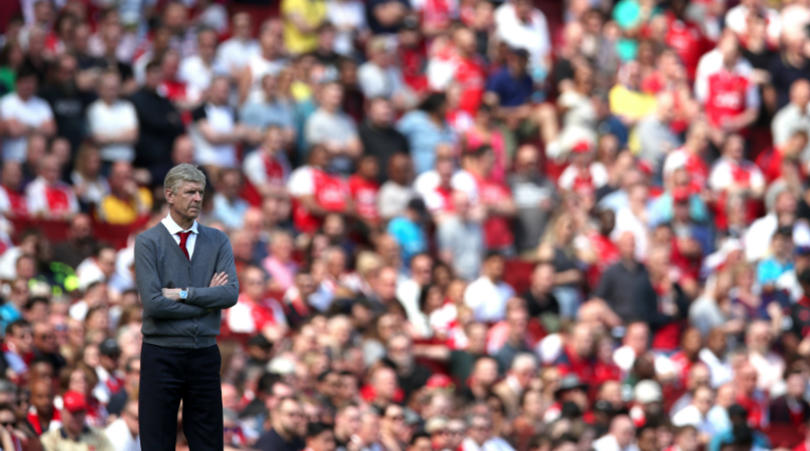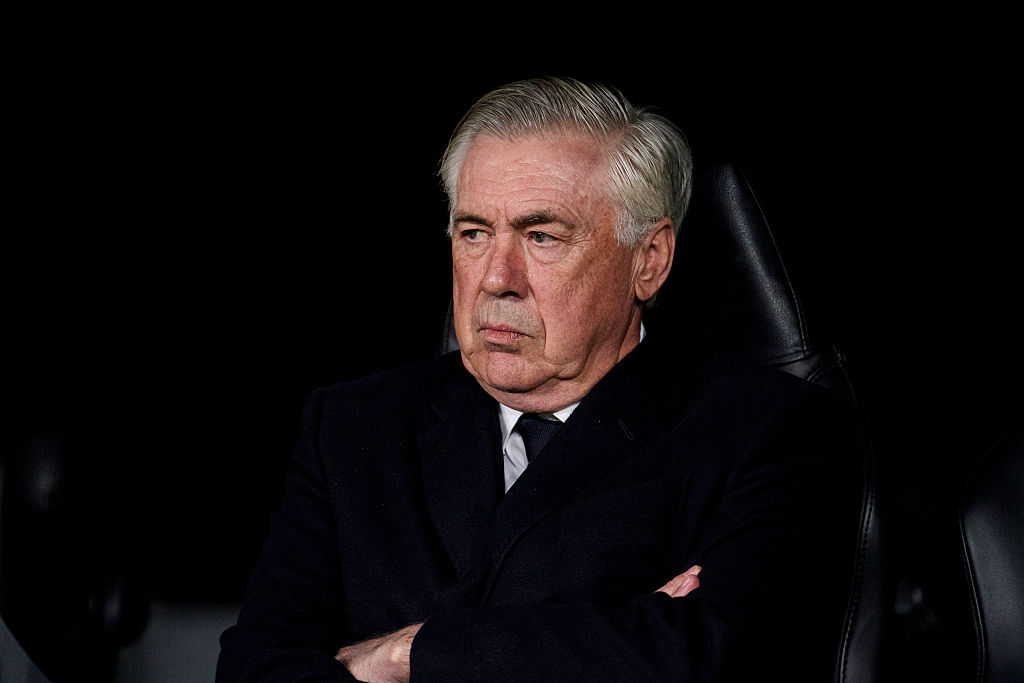Where EVERY current Premier League manager was upon Arsene Wenger's arrival in 1996
The division's longest-serving manager is going, but what were the other 19 doing when he arrived at Arsenal?
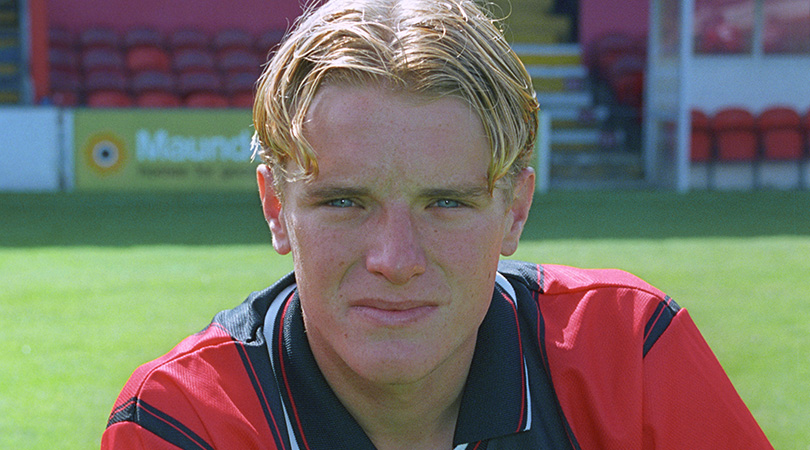
Arsene Wenger’s reign at Arsenal began, some statisticians say, a bloody long time ago. October 1, 1996, in fact. When Wenger left Japan’s Nagoya Grampus Eight to start at Highbury, John Major was Prime Minister, Wannabe was in the Top 10 and Peter Shilton was still playing league football.
This summer, after nearly 22 years of breathtaking highs (two Double-winning teams, the Invincibles, a Champions League final) and fan-enraging lows (everything that’s happened since then, outside of the FA Cup), Wenger hangs up his shoplifters’ trenchcoat to let somebody else have a go at managing Arsenal.
Candidates for the Gunners’ hot seat have certainly changed in the intervening period. In 1996, before Wenger’s appointment, Johan Cruyff was tipped to swap the Barcelona dugout for Arsenal’s; today, the frontrunners include Julian Nagelsmann, who wasn’t born when Cruyff started managing the Blaugrana.
And what were Wenger’s current contemporaries in the Premier League doing at the time he arrived in England? This being the Premier League, we’re talking about an, uh, ‘experienced’ collection of managers, so unlike many of their Bundesliga counterparts, they were at least old enough to buy a round in October 1996. That even goes for the youngest of the lot...
Eddie Howe (18)
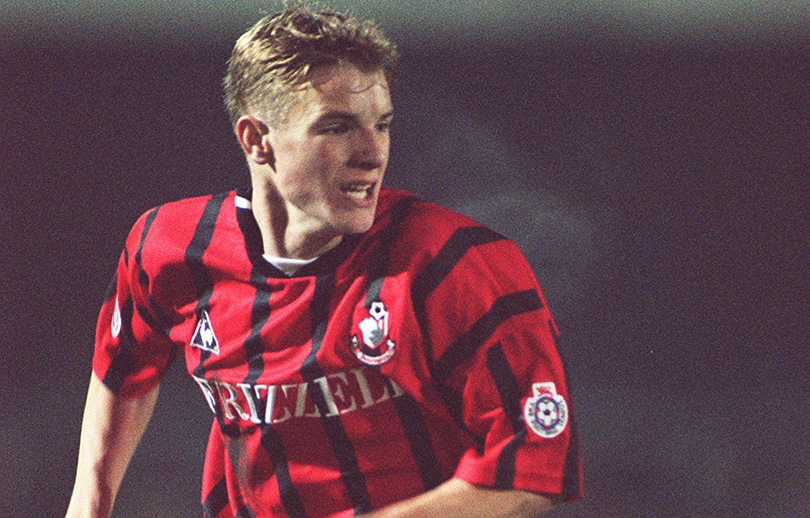
It’s oddly comforting to know that the Bournemouth manager’s features have barely changed since he was playing there, even as a mere child in his second season.
There’s just one key difference today, and it’s not that a 40-year-old Howe has taken his boyhood club to three promotions and the top half of the Premier League. Nope – it’s the tragic lack of curtains. Bring those back, Eddie, now.
Get FourFourTwo Newsletter
The best features, fun and footballing quizzes, straight to your inbox every week.
Chris Hughton (37)
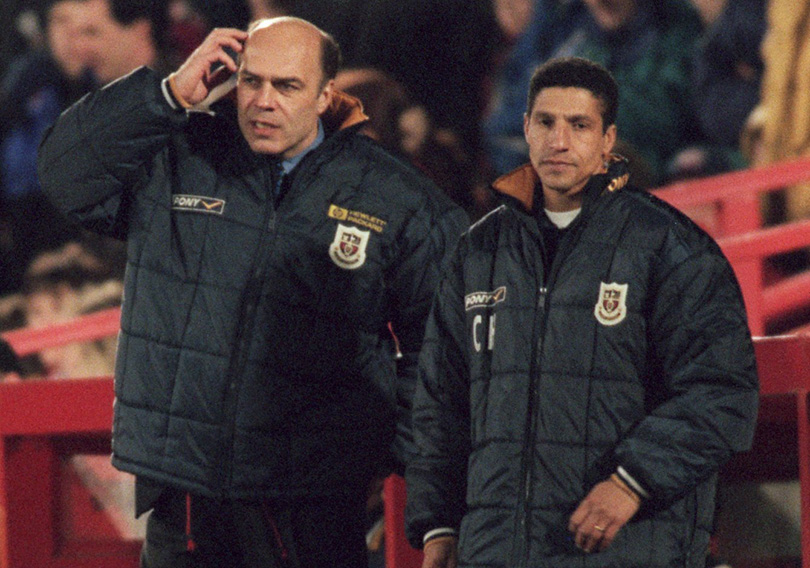
The silver fox turns 60 this year, so in 1996 he was no spring chicken. His coaching career was in its infancy, however. In 1993, Hughton gave up life as a full-back and began working with the under-21s at Tottenham, where he’d made nearly 400 appearances, and Tottenham is where he’d remain for another decade-and-a-half, coaching the kids, managing the reserves or standing on the touchline next to a succession of incompetent managers (see picture).
Though Hughton’s entrance into senior management came late, he's more made up for lost time by taking Brighton to their first top-flight season since 1983, when Hughton himself was only a nipper aged… 24? Really? That can’t be right.
Sean Dyche (25)
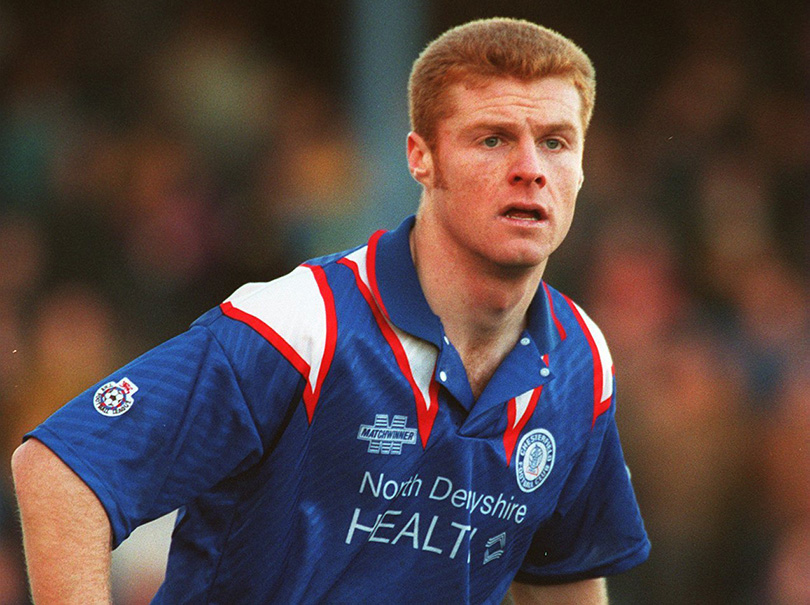
Dyche was having a season to remember in 1996/97, captaining third-tier Chesterfield to an FA Cup semi-final against Middlesbrough and then scoring a penalty to give the Spireites a 2-0 lead. With the help of a wrongly disallowed Chesterfield goal, Boro came back to draw 3-3 and win the replay, giving a certain gravel-voiced defender an origin story for his upcoming biopic, Dyche: The Worm Has Turned.
Motivated by that memory, or perhaps just very good at managing, Dyche has since earned promotion twice with Burnley and is on the cusp of taking them into Europe – which, seeing as two-thirds of the town voted for Brexit, they’ll probably hate.
Antonio Conte (27)
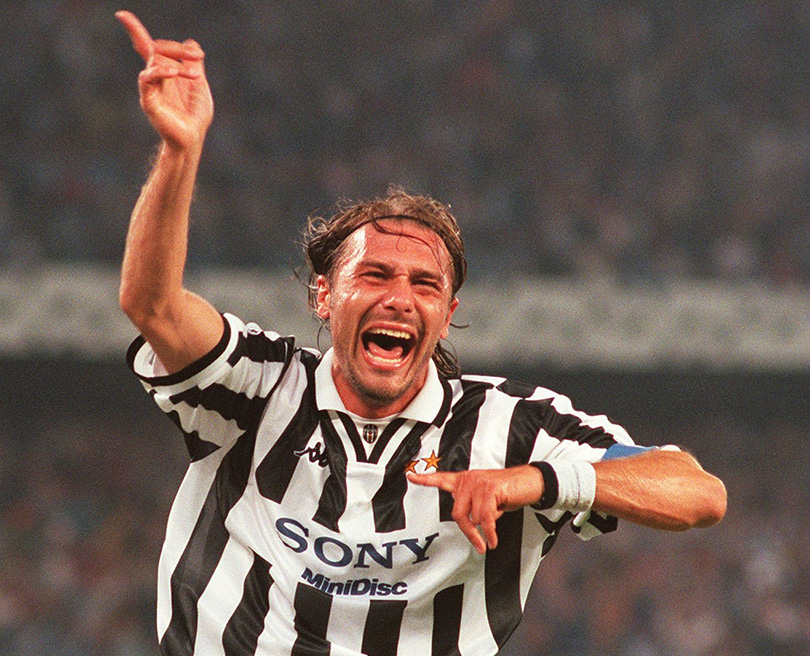
From winning the Champions League as a Juventus player in 1996 to winning the Premier League as Chelsea manager in 2017, Conte found a way to weave together passion and perception like a surgeon expertly performing a hair transplant.
Roy Hodgson (49)
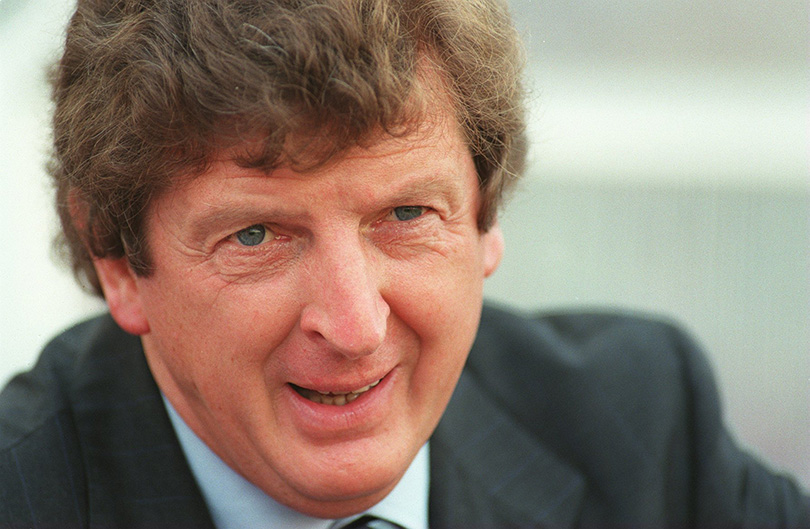
The Croydon-born Crystal Palace gaffer is leading a remarkable survival bid at his local club. But then, he’s been underestimated throughout his career, from guiding Switzerland to their first World Cup in 30 years, to masterminding a four-goal comeback against Juventus on Fulham’s 18-game journey to 2010’s Europa League final.
In 1996, Hodgson was in his eighth managerial role, halfway through a two-year spell with Italian giants Inter – where he sold Roberto Carlos to Real Madrid and seemingly auditioned for Line of Duty.
Sam Allardyce (41)
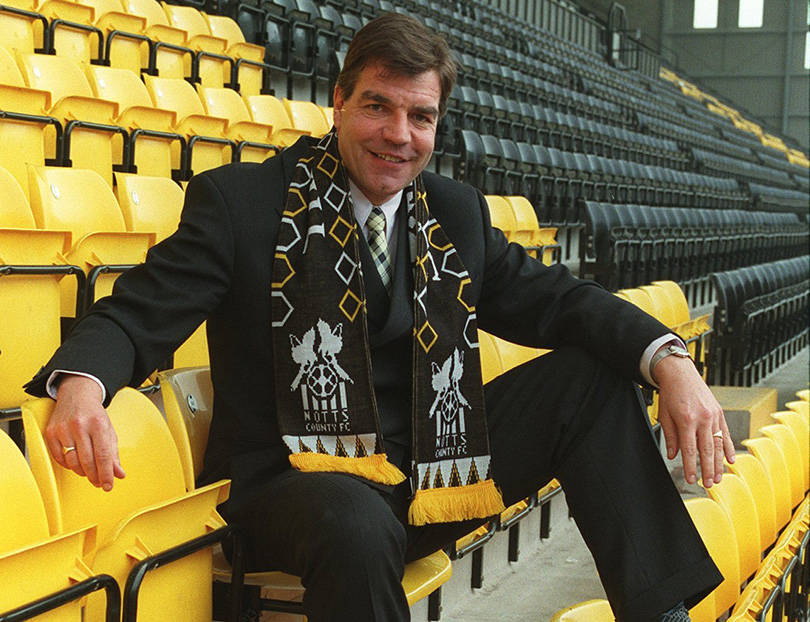
Wenger’s start date of October 1, 1996 coincided with a 41-year-old Allardyce doing… not a lot, actually. The ex-defender was ‘between jobs’, as the unemployed put it, having been sacked by Blackpool owner Owen Oyston from his prison cell (Oyston’s, not Allardyce’s).
In January 1997, Notts County pressed the Big Sam button, but he couldn’t prevent relegation to the fourth tier because, in his words, “the players would not respond” to his methods. This must be where Allardyce, now in his biggest ever club role with Everton, got the idea he’s “more suited” to managing Real Madrid.
David Wagner (24)
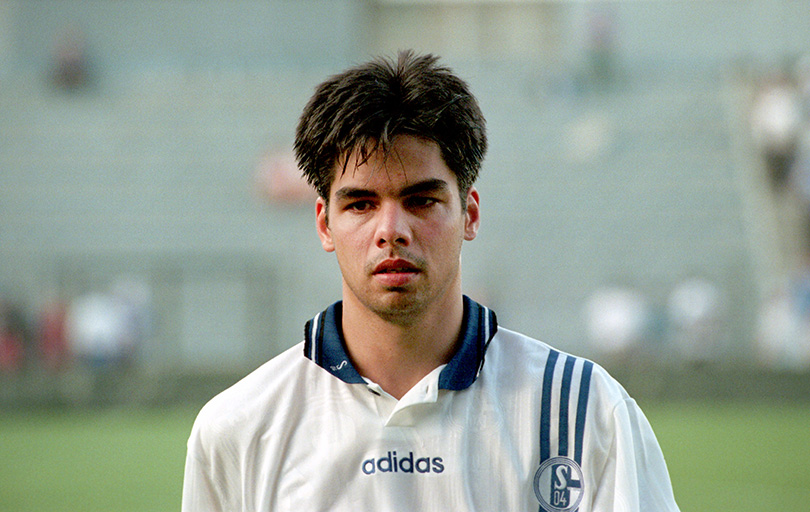
The future Huddersfield boss spent the 1996/97 season winning the UEFA Cup as a Schalke player, while making his debut for the USA and prompting mothers across Germany and the States to ask why their daughters can’t bring home a nice young man like him.
Claude Puel (35)
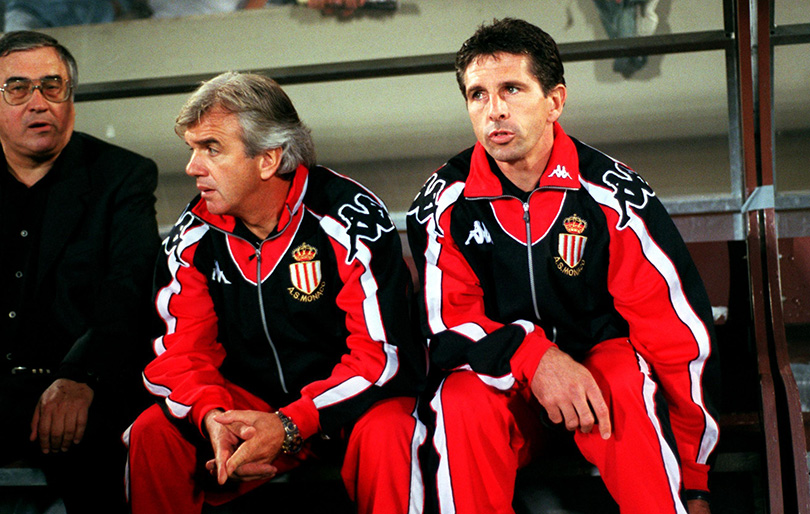
Puel played under Wenger for seven of his 20 years in a Monaco shirt before retiring in 1996, not long after Wenger’s enforced departure. He took on the role himself a few years later and won the French title in his first full season in management, 1999/2000.
Since then, Puel has had some success in France with Lille, Lyon and Nice, and some games in England with Southampton and Leicester. However, while Wenger’s championship win with Monaco in 1988 was the first of 21 pieces of silverware collected in his managerial career, Puel’s was the first of two.
Jurgen Klopp (29)
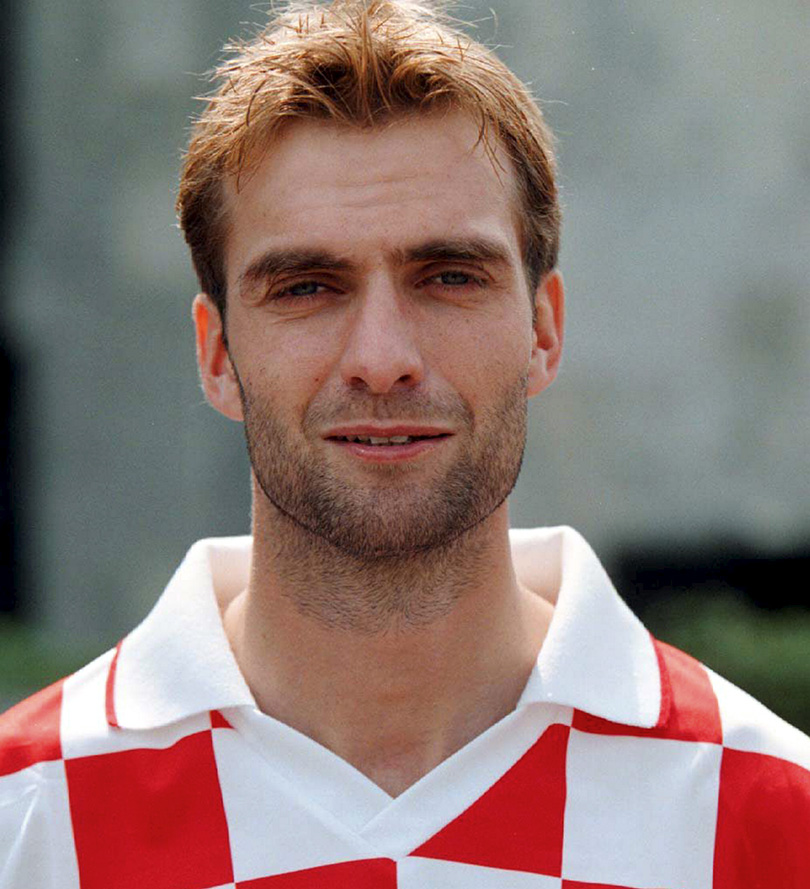
More accurately, Jurgen Norbert Klopp was playing football for Mainz, where he’d later make his name as a coach. In 1996, he’d just moved from attack to defence, like a German Dion Dublin. Dion Berlin? No? OK.
Pep Guardiola (25)
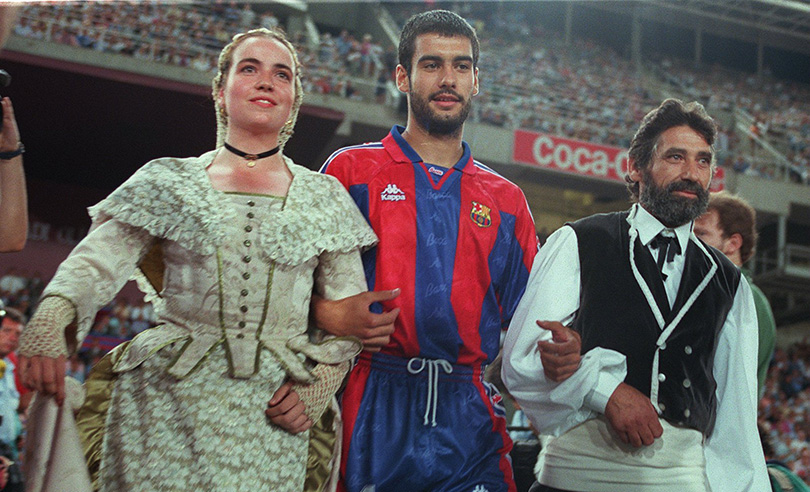
In the six years between leaving Barcelona as a player and returning as a youth coach, Guardiola embarked on a mission of self-discovery and footballing enlightenment, winding down his playing career in Italy, Qatar and Mexico. Admittedly, we’re not sure what there was to discover in Qatar.
In 1996, though, long before he was transforming management in much the way Wenger did, Guardiola was but a humble holding midfielder in a team featuring Ronaldo, Luis Figo, Sergio Busquets’s dad and fellow future managers Luis Enrique, Julen Lopetegui and Laurent Blanc. And he had hair – a surprisingly thick mop of hair, in fact. Maybe Antonio Conte stole it.
Jose Mourinho (33)
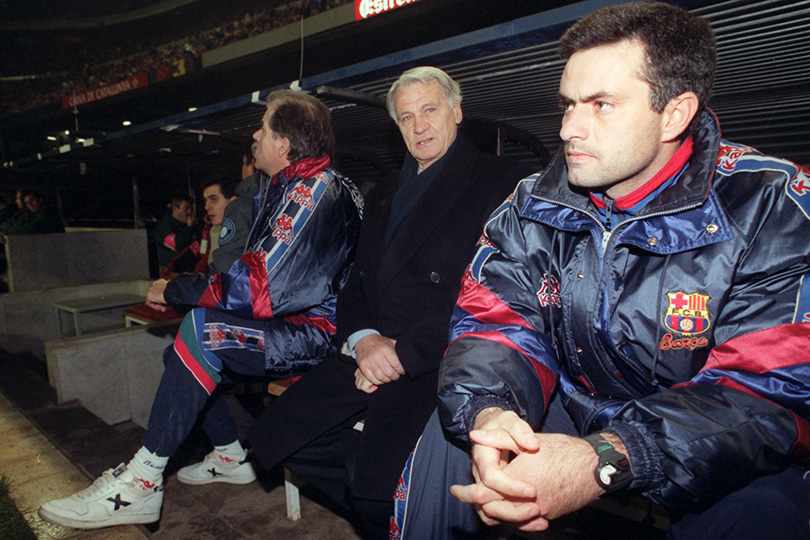
You know who else was at Barcelona at that time? Robert Prosinecki. But also Jose Mourinho, the protégé of Barça manager Bobby Robson. Having begun as Robson’s translator, Mourinho was beginning to have a greater influence on the team – not least because he’d embellish translations with his own opinions.
When Robson left Barcelona after just one season, Mourinho stayed on as assistant to Louis van Gaal. In 2000, he entered management and then disappeared from football altogether, never to be seen again.
Rafa Benitez (36)
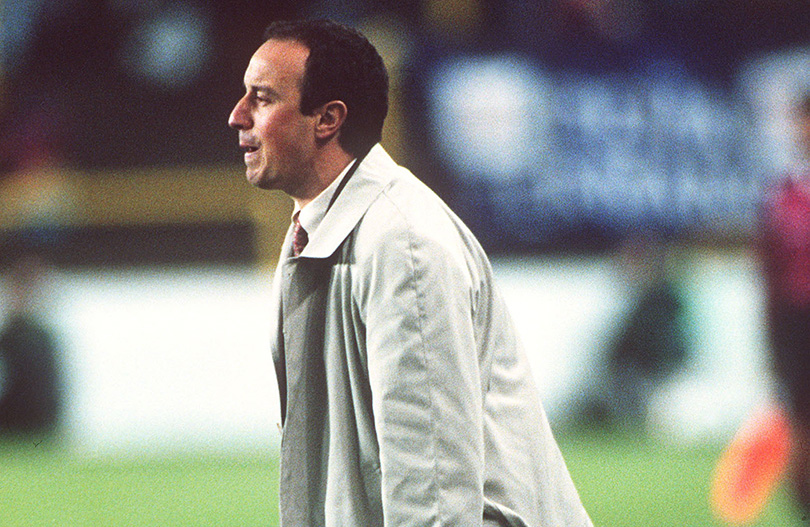
Benitez, like Mourinho and Wenger, was never much of a footballer. Instead, he joined Real Madrid’s coaching staff at the age of 26, and 10 years later, as his future Premier League rival started to rearrange the furniture at Highbury, Rafa was the proud owner of two P45s (or the Spanish equivalent thereof).
Sacked by Rayo Vallecano after a couple of dozen games and then by Osasuna after only nine, Benitez must have wondered to himself if football was really his thing. Thankfully for Valencia, Liverpool and now Newcastle, he decided to stick at it.
Mark Hughes (32)
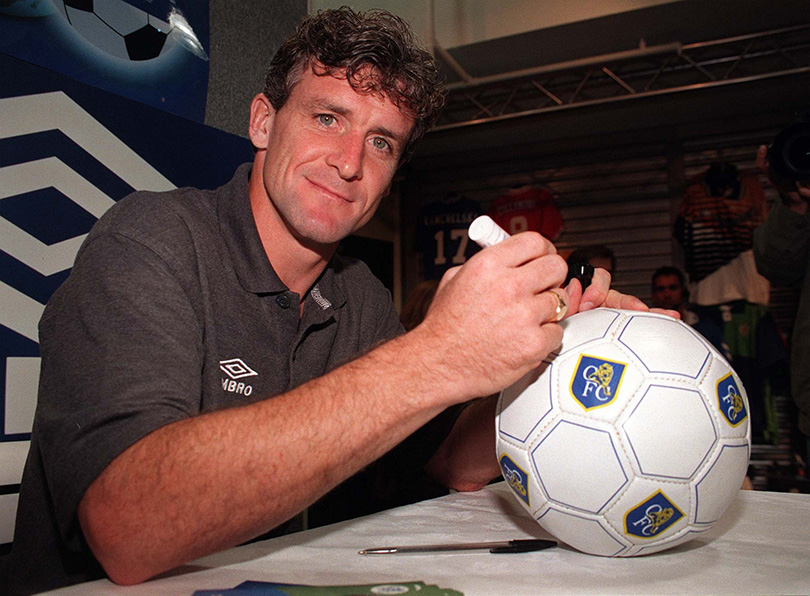
It’s easy to forget that the cheery Welshman played for another four Premier League clubs after leaving Manchester United in 1995. The first stop was Chelsea, and 1996/97 Hughes won the FA Cup, the Blues' first trophy of note since 1970.
After eventually hanging up his boots, Sparky continued his conquest of England by managing six Premier League clubs – a record bettered only by Allardyce. A combined 13 Premier League jobs held since 2001 by the current Southampton and Everton bosses have yielded zero trophies and the highest position of sixth.
Paul Lambert (27)
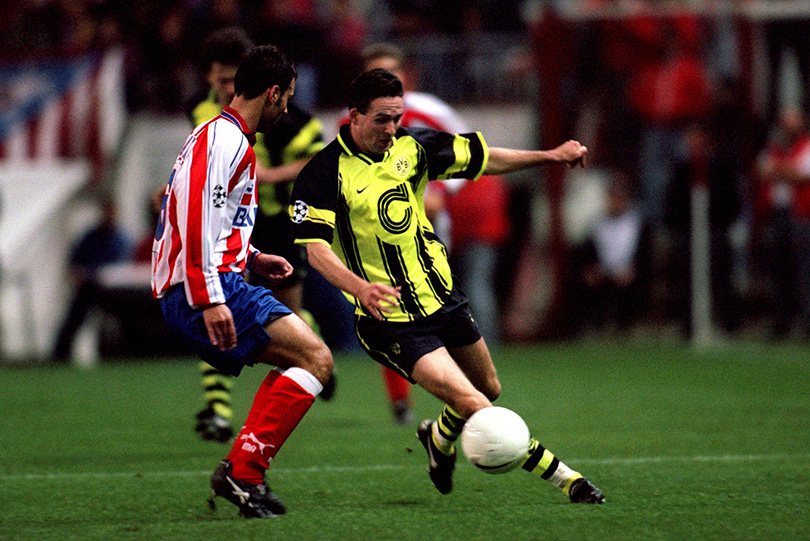
In 1996, Lambert fancied a change of scenery. So, 10 years on from starting his playing career in Scotland and 10 years before ending it there, the midfielder went to Borussia Dortmund for 15 months and won the Champions League, helping to mark Juventus’s Zinedine Zidane out of the final.
Yet here we are now, with Lambert managing Stoke and Zidane in charge of Real Madrid. There’s no justice in this world.
Carlos Carvalhal (30)
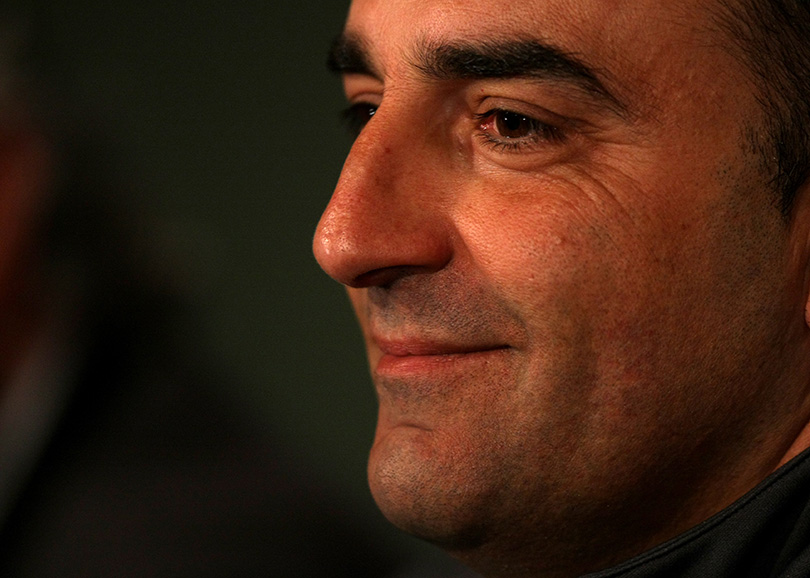
The Swansea boss was a journeyman centre-back in his playing days, and if you think that’s damning him with faint praise, bear in mind that Wikipedia describes Carvalhal’s 1987/88 season with Braga as “one of his best years in the Primeira Liga, appearing in 34 games and only being booked seven times”.
In 1996/97, Carvalhal was playing for Espinho, who later gave him a first shot at management. He’d go on to manage 11 Portuguese clubs – enough to make Hughes and Allardyce look positively picky – as well as two in Turkey and one in Greece before turning up at Sheffield Wednesday, then Swansea.
Mauricio Pochettino (24)
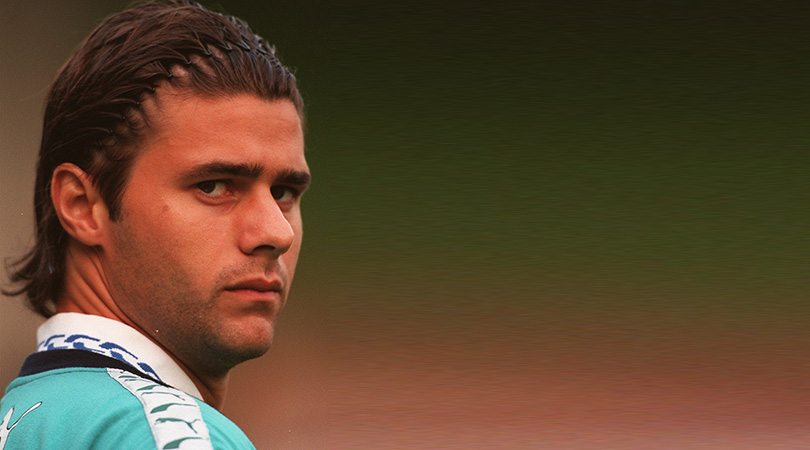
This Espanyol defender would like you to know that there’s nothing wrong with wearing an Alice band.
Javi Gracia (26)
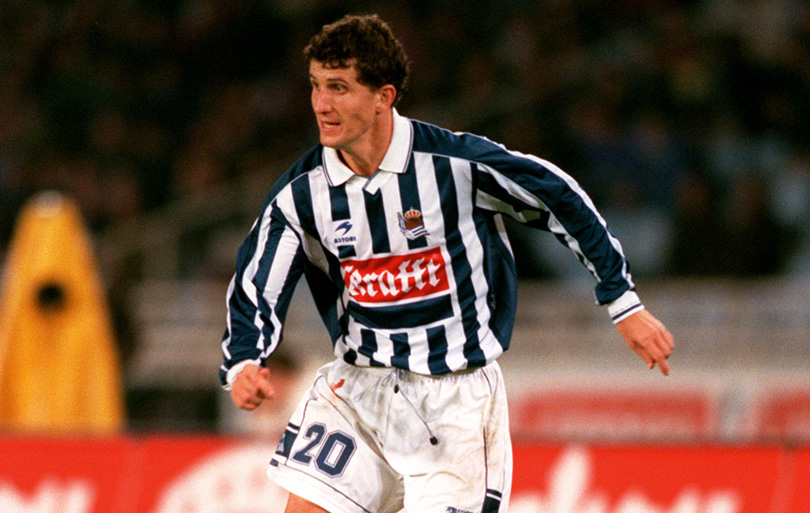
The Running Bull of Pamplona, as we’ve now decided he should be called, probably reacted with a shrug when he saw the news that Arsenal had hired Arsene Wenger. If you told him back then that two decades later, his Watford team would lose 3-0 at the Emirates, he’d say: “What’s a Watford? And who are you? How did you get into the dressing room?”
Darren Moore (22)
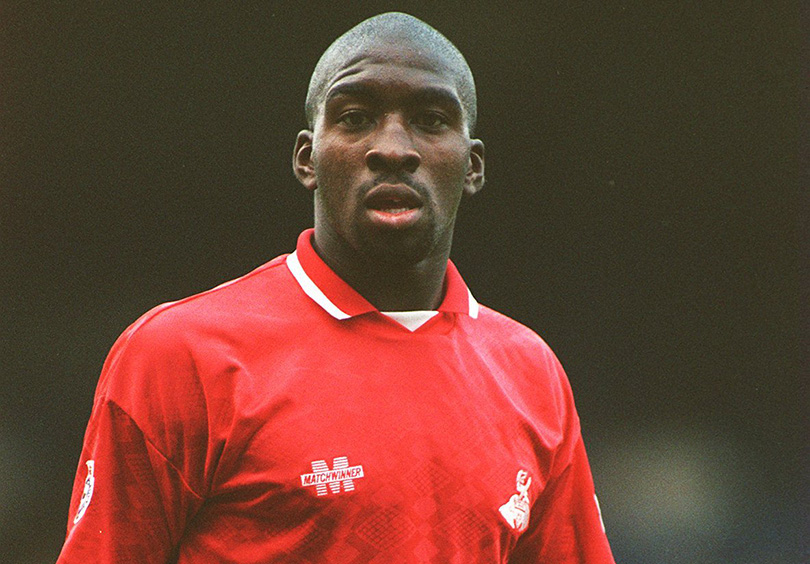
Currently acting as West Brom's caretaker, metaphorically and perhaps literally sweeping up the mess that Alan Pardew made. Moore took a Baggies side that had lost nine games on the spin and guided them, in his first three games in management, to draws with Swansea and Liverpool either side of an unlikely win at Manchester United.
Back in October 1996, Moore was a young centre-back watching Doncaster beginning to fall apart around him (well, not literally). Sensibly, he got out before things really collapsed into rubble the following season.
David Moyes (33)
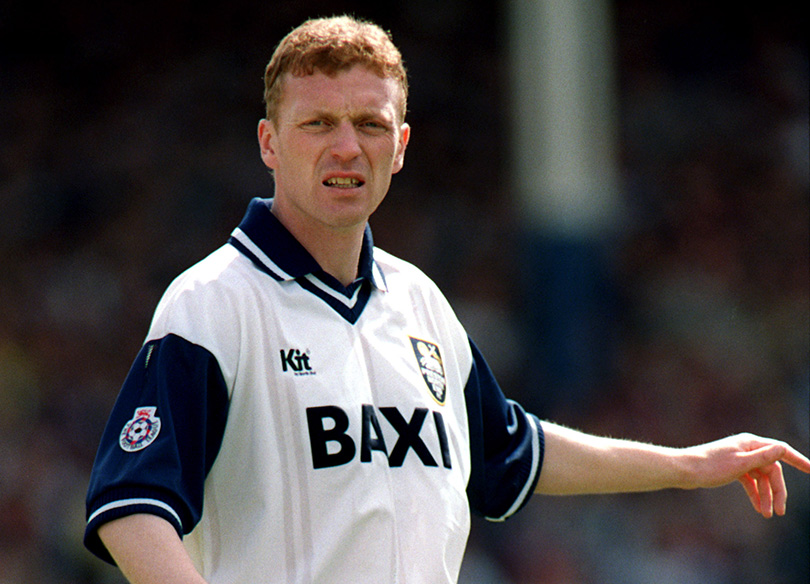
As he plodded around the Preston pitch, perhaps Moyes daydreamed about managing Manchester United one day and taking on this Wenger chap who’s all over the news. Maybe, he mused as an opposition striker scampered past him, he’d fall in love with a tall, dark and handsome stranger called Marianne, or something like that. He could even take charge at West Ham, if they’d have him.
In October 1996, these were mere pipe dreams for the defender. Just 15 months later, however, he’d be named Preston manager – and from there, the only way was up… and then down.
The lives of others...
Elsewhere in England, Wenger joined Arsenal at a time when today’s Hull manager Nigel Adkins had just begun at Scunthorpe as a newly-qualified physio, while Reading’s Paul Clement was a PE teacher in Sutton, where he was apparently coaching a pretty decent school basketball team. Less studiously, a teenage Lee Bowyer – now caretaker manager at Charlton – was being convicted for affray.
As for Wenger’s modern contemporaries abroad, Real Madrid’s Zinedine Zidane was 24 and had recently swapped Bordeaux for Juventus at the time of his compatriot’s unveiling at Arsenal. Diego Simeone was carving out a reasonable playing career, too, representing Atletico with the same furious passion that he shows on the Colchoneros’ touchline today.
Milan coach Gennaro Gattuso was yet to begin his own famous story at the club he now manages: in 1996 he was a teenager in Perugia’s midfield, reading guidebooks to Glasgow and wondering if playing for Rangers might make for a fun gap year. Leonardo Jardim, currently manager of Wenger’s former club, Monaco, was a few years older than Gattuso at 22, yet already commencing his coaching career.
Take today’s roster of Bundesliga coaches to meet their former selves in October 1996 and several of them would be presented with gawky teenagers – if that. Domenico Todesco may be preparing to manage Schalke in the 2018/19 Champions League, but when Wenger rocked up at Arsenal he was still giddy after celebrating his 11th birthday. Hoffenheim’s Julian Nagelsmann, meanwhile, has been touted as Wenger’s successor at Arsenal. When Wenger started work there, Nagelsmann was nine.
And finally, what was today’s England manager, Gareth Southgate, doing in the autumn of 1996? Well...
Huw was on the FourFourTwo staff from 2009 to 2015, ultimately as the magazine's Managing Editor, before becoming a freelancer and moving to Wales. As a writer, editor and tragic statto, he still contributes regularly to FFT in print and online, though as a match-going #WalesAway fan, he left a small chunk of his brain on one of many bus journeys across France in 2016.
